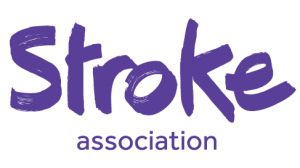
News -
A third of all stroke survivors could develop dementia within five years
This dementia awareness week, three of the UK’s leading health charities have highlighted that one in ten stroke survivors (10 per cent) are expected to develop dementia within a year of having their stroke, increasing to a third (32 per cent) within 5 years.(1)
Three quarters (75 per cent) of dementia cases in stroke survivors are thought to be caused by vascular dementia. Vascular dementia is a condition strongly linked to stroke, and there is currently no proven treatment.(2)
Vascular dementia is the second most common type of dementia after Alzheimer’s disease. The word ‘dementia’ describes a set of symptoms that can include memory loss and difficulties with thinking, problem-solving or language. In vascular dementia, these symptoms occur when the brain is damaged because of problems with the supply of blood to the brain.
In a bid to find ways to treat people living with this devastating disease, the Alzheimer’s Society, British Heart Foundation and the Stroke Association have united to invest £2.2 million into a vascular dementia research programme.
Around 150,000 people in the UK are living with vascular dementia, with the latest estimates suggesting that by 2050 the number could rise dramatically to 350,000 people.(3,4)
Part of this potentially life changing investment will be used to fund a large clinical study involving about 2,000 stroke patients, and which will include assessing their memory and other cognitive skills over at least a two year period.
Researchers hope that by comparing stroke patients who develop vascular dementia with those who don’t, they will be able to unpick the causes of the disease. Ultimately, this trial will help to improve how doctors identify and treat dementia related to stroke in the future.
There are more than 100,000 strokes each year in the UK, with over 1.2 million people currently living with the condition. Problems with thinking and memory often occur after stroke, but for many patients these problems do not get worse.
Professor Joanna Wardlaw, Chair of Applied Neuroimaging at the University of Edinburgh, leading the research, said:
“By comparing those whose who develop vascular dementia after stroke with those who don’t we hope to find out what causes vascular dementia, and find a way to prevent it.”
Danny Clarke, 69 from Liverpool said:
“Things changed for me seven years ago when I had a mini stroke and later diagnosed with vascular dementia. I knew something was wrong when I went out and completely forgot where I lived. I just couldn’t remember how to get home.
“My wife Cathy noticed my moods changed, that I was forgetting and misplacing things around the house, and I didn’t sleep. It was a distressing time for us both because we didn’t expect our lives to change.
“I worry about my wife and the impact my condition will have on our lives. I am pleased to hear that charities are coming together to help people like me when there is very little awareness on vascular dementia.”
Professor Jeremy Pearson, Associate Medical Director at the British Heart Foundation, said:
“To survive a stroke, only to be diagnosed with dementia is the heart-breaking reality for hundreds of thousands of people in the UK.
“We know that stroke survivors are more likely to develop vascular dementia. What we don’t know is why. And right now doctors are powerless to prevent the onset of this devastating disease in people who have already had a stroke.
“By funding this research we’re hoping to give patients answers, and find a way to finally treat vascular dementia.”
Juliet Bouverie, Chief Executive at the Stroke Association, said:
“These figures suggest that there could be a staggering increase in the number of people going on to have vascular dementia in the future as a result of their stroke. The impact of the disease on stroke survivors’ lives is devastating, robbing people of their memory, independence and dignity.
“There’s so much we still don’t know about the link between vascular dementia and stroke, but we know all too well the devastation that these conditions can bring. That’s why we’re working together and investing in this important research to change the story for many stroke survivors.”
References
1.Leys, D., Hénon, H., Mackowiak-Cordoliani, M.A. and Pasquier, F., 2005. Poststroke dementia. The Lancet Neurology, 4(11), pp.752-759. [PubMed]
2.Allan, L.M., Rowan, E.N., Firbank, M.J., Thomas, A.J., Parry, S.W., Polvikoski, T.M., O'Brien, J.T. and Kalaria, R.N., 2011. Long term incidence of dementia, predictors of mortality and pathological diagnosis in older stroke survivors. Brain, 134(12), pp.3716-3727. [Pubmed]
3.Vascular dementia, Alzheimer’s Society. Date accessed: 15/07/17 https://www.alzheimers.org.uk/info/20007/types_of_dementia/5/vascular_dementia.
4.Dementia UK report 2014. Date accessed: 15/07/17 https://www.alzheimers.org.uk/download/downloads/id/2323/dementia_uk_update.pdf










